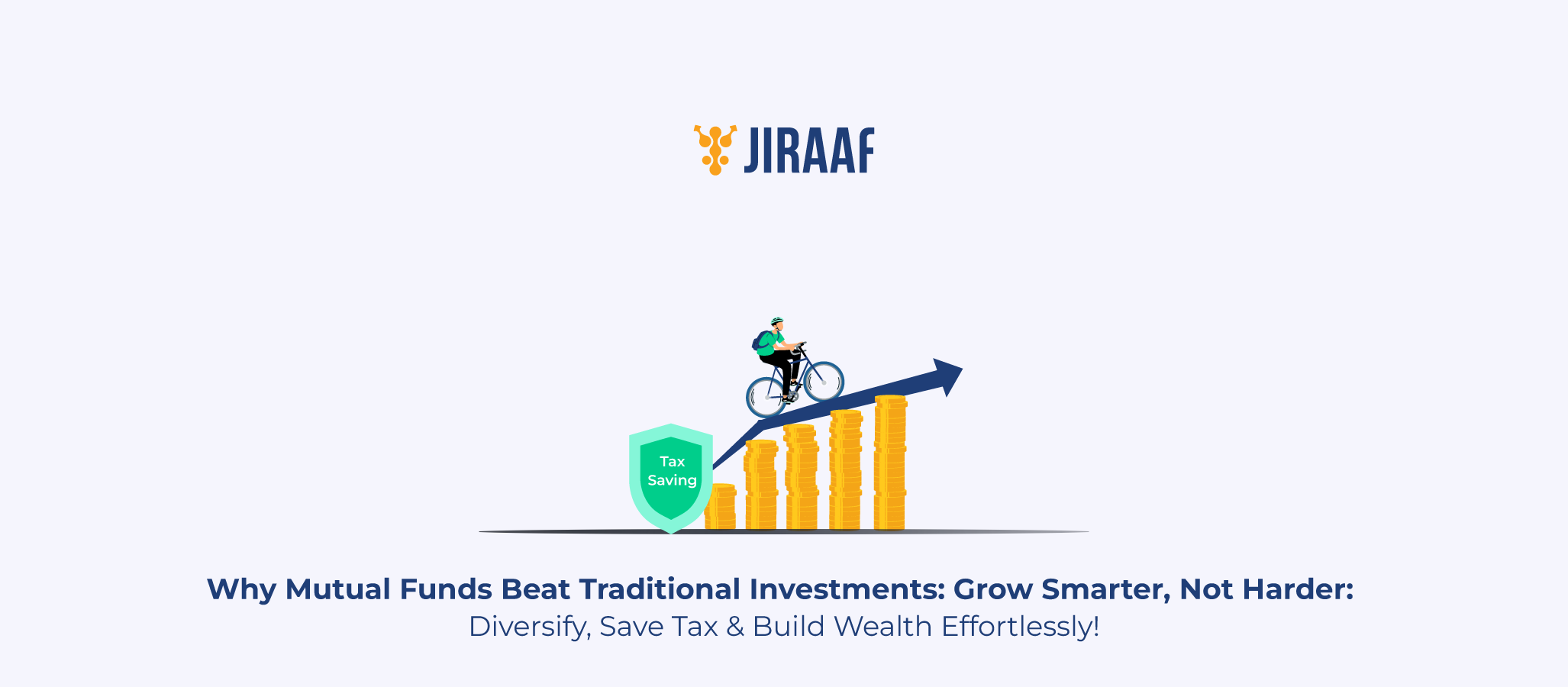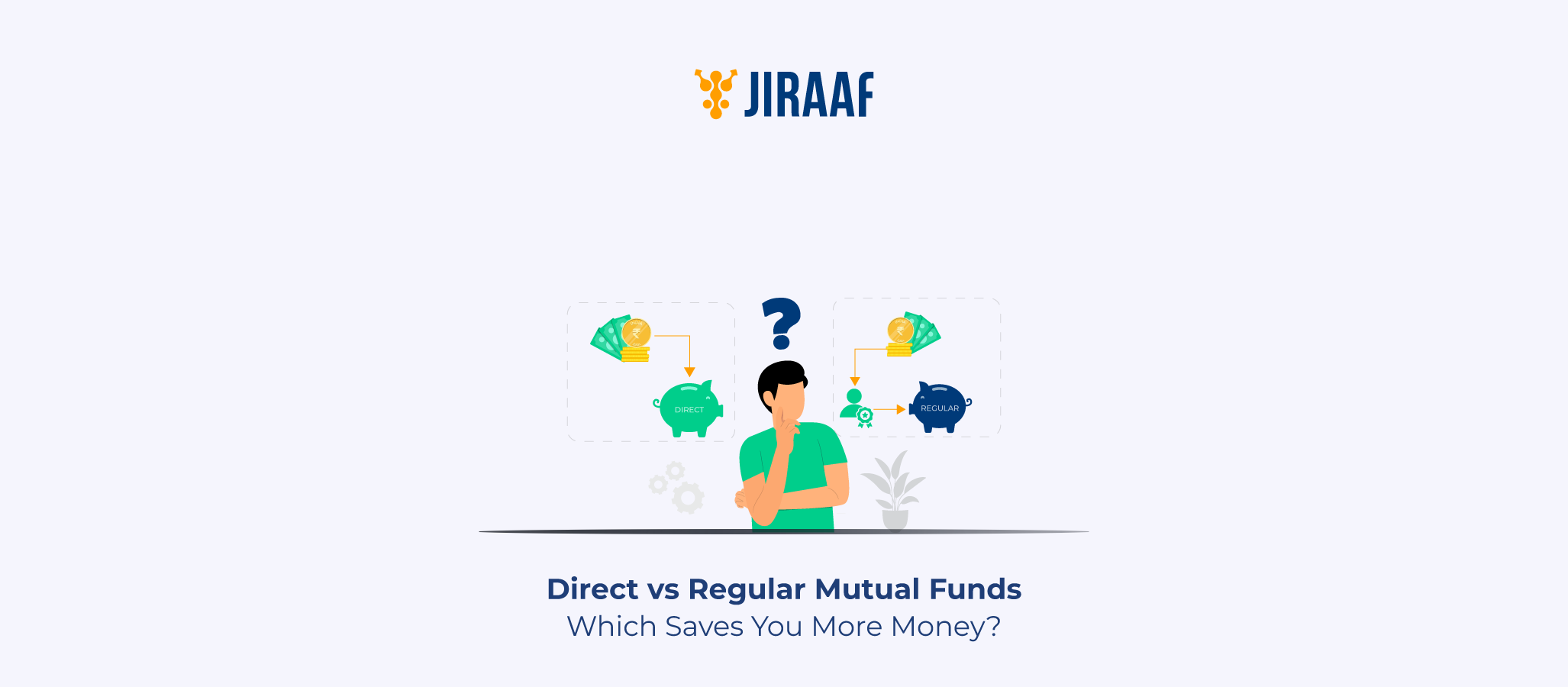A mutual fund is a type of financial instrument where you can pool in funds into securities, like stocks, bonds, and money market instruments. The most favourable assets are selected by a fund manager, and then you will get a portion of the gains if your investments perform well.
Mutual funds are a preferred investment option because of their simplicity, professional management and diversity for several people. Mutual funds offer easy access to a range of assets while lowering risk, regardless of your level of experience as an investor. We’ll look at the main benefits of mutual funds, including their power of compounding, tax advantages, and liquidity.
History and Evolution of Mutual Funds in India
Knowing the history of mutual funds is helpful if you plan on investing in them. India’s mutual fund business has gone through many significant stages of development, influenced by private sector participation, regulatory changes, and government efforts.
The industry pioneer, Unit Trust of India (UTI) is where your journey with Indian mutual funds begins. Initiated by the Reserve Bank of India (RBI) and the government of India, UTI was established in 1963 by an Act of Parliament.
In 1978, the Industrial Development Bank of India (IDBI) took over management of UTI from the RBI. Soon after, the first scheme, Unit Scheme 1964 (US-64), was introduced, setting the stage for further investments.
The start of organized investment in the nation was signalled by UTI’s management of almost ₹6,700 crores in assets at the end of this period.
The introduction of public sector mutual funds in 1987 led to diversification in the mutual fund business. The first non-UTI mutual fund in India was introduced by the State Bank of India (SBI) in June 1987. Canara Bank, Punjab National Bank (PNB), Indian Bank, Bank of India, Bank of Baroda, and Life Insurance Corporation of India (LIC) were some of the public sector organizations that came after this. The business had experienced considerable growth by 1993, with ₹47,004 crores in assets under management.
The Securities and Exchange Board of India (SEBI) established a regulatory framework for mutual funds in India in 1993 with the introduction of the mutual funds regulations. These rules were updated in 1996 to improve investor protection, standardize the processes, and encourage transparency.
33 mutual fund institutions were in charge of over ₹1.21 lakh crores in assets by January 2003, with UTI at the front of the pack with ₹44,541 crores.
UTI saw a dramatic change in February 2003. After the abolition of the Unit Trust of India Act, UTI was divided into two organizations:
Outside the scope of SEBI’s mutual fund regulations, the specified undertaking of the unit trust of India (SUUTI) managed heritage schemes like US-64 and operated in accordance with the government.
UTI Mutual Fund: This organization is registered with SEBI and operates in accordance with the Mutual Fund Regulations. It is sponsored by SBI, PNB, Bank of Baroda, and LIC.
Who Regulates Mutual Fund AMCs?
Many elements of mutual fund operations are covered by SEBI, including money distribution, investor feedback, and the transparency of investments and valuations. These regulations govern the appointment of asset management companies (AMCs), and SEBI closely monitors them.
Understanding the duties that SEBI performs is essential for digging deeper into its function and how it influences the mutual fund industry. Here’s what SEBI does:
- Develops mutual fund rules with investor safety in mind.
- Monitors the market for mutual funds to ensure its integrity.
- Encourages the growth of the mutual fund industry.
SEBI makes sure that mutual funds run fairly and effectively. Establishing a framework to safeguard investor interests, maintaining market integrity, and supervising mutual fund activities from their establishment to administration are all part of SEBI’s responsibility.
Benefits of Mutual Fund Investments
Here are some advantages of mutual funds and why you should consider investing in them:
- Instant portfolio diversification: Every mutual fund is designed with portfolio diversification from the beginning. You don’t have to worry about having all your eggs in one basket because a mutual fund investment has hundreds of stock holdings from many industries. This helps to reduce both investment risk and market volatility.
- Ability to buy fractional shares: Most brokers insist that you buy whole shares—that is, a number like 5, 50, 100 —when purchasing individual stocks. You don’t need to do this when you buy mutual funds. You can instead focus on the amount of money you want to invest. This allows for easier investing for you if you do not have a large amount of money ready to invest.
- Invest a small amount of money: You can start with as little as ₹500. Post this initial investment, you need to subsequently invest more over time to save up for the future. You can set up an automatic investment option or just spontaneously invest more money, usually the same or maybe lesser than the initial investment.
- Management is professional: When you invest in mutual funds, your investment is in safe hands because a team of fund managers work together to select the stocks that the mutual fund will invest in. They continually monitor the fund’s performance in the market and if they see better investing opportunities, they will sell some holdings to buy something else.
- Dividend reinvestment: In simple words, this means that every time you get paid a dividend, you can easily reinvest the money and buy more mutual fund assets. This helps grow your investment because when you invest the dividends, those too can start compounding and increase returns.
Drawbacks of Mutual Fund Investments
However, they do come with certain risks that you need to consider before you finalize your investment:
- Number of options: As of now, there are 45 asset management companies in India offering multiple schemes to invest in. Many people are discouraged from starting to invest after seeing that figure. The fact that many of the mutual funds are quite identical to one another – they are just provided by different mutual fund companies – makes things even more tricky or confusing.
- Overlap with stocks: Mutual funds are likely to have an overlap of some individual stocks. So, you end up increasing some of your exposure even though you think you are diversifying your investments.
- No capital gains control: Lack of control over capital gains is one of mutual funds’ major drawbacks. When you buy individual stocks, you have complete control over when to sell your holdings and, consequently when to realize capital gains that are subject to taxation.
- No real time trading: Mutual funds need you to wait until the end of the day, but stocks and exchange-traded funds (ETFs) can be bought or sold whenever the market is open and at that price.
Who Should Invest in Mutual Funds?
Realistically, mutual funds aren’t just for ”finance geeks” or high-net-worth individuals (HNIs). They are a way for everyday Indians to grow their money. But do you think they’re right for you? Let’s put it in simple terms.
Mutual funds are ideal if you’re new with investing and don’t understand stocks. Even ₹500/month via a systematic investment plan (SIP) is managed by professionals when you start small. For consistent growth without the hassle of picking individual equities, try large-cap or hybrid funds.
If stuck in the tax bracket of 20–30%, ELSS funds outperform FDs in terms of returns while saving taxes under Section 80C. They are perfect for long-term wealth growth and tax planning because they only have a three-year lock-in period.
Debt mutual funds like liquid or short-duration funds offer 5-7% returns with lower taxes after three years if market volatility bothers you but FDs offer weak post-tax returns. Better than FDs, but safer than stocks.
If you need monthly income, regular payouts (like a pension) and frequently higher post-tax returns, systematic withdrawal plan (SWP) could be your go-to option after consistently investing in for a certain period of time.
Conclusion
In India, mutual funds have revolutionized investing by enabling everyone, from novices to seasoned investors, to build wealth. They provide a more intelligent option than conventional options like FDs because of their advantages, which include diversified portfolios, professional management, tax efficiency, and the compounding power.
They do have certain risks associated that you should consider like market volatility, stock overlap, and the absence of real-time trading which investors must be aware of. The secret is to match your investments to your time horizon, risk tolerance, and financial objectives. The SEBI-regulated mutual fund sector in India has developed into an open and investor-friendly framework. There is a mutual fund designed just for you, regardless of your status: young parent, retiree, homemaker, or salaried professional.
FAQs
Is mutual fund better than FD?
Since mutual funds invest in the debt/equity markets, they have better potential for growth than FDs and can outperform inflation over time. In contrast to FDs, which offer set and guaranteed returns, mutual funds are subject to market risks. FDs are safer for short-term objectives. The returns from mutual funds, particularly equities SIPs, are often higher for long-term wealth development. Make your choice depending on your financial objectives and risk tolerance.
Is mutual fund tax free?
Mutual funds are not tax-free but give tax efficiency. When equity funds are held for over a year, they are subject to 12.5% LTCG tax, whereas short-term gains are subject to 20% tax. Holdings are taxed according to slab. They are better than FDs for long-term growth because of the different tax treatment depending on the type and duration.
Can you lose money in mutual funds?
Mutual funds do have the potential to lose money because they are market-linked. While debt funds are subject to credit and interest rate concerns, equity funds are subject to changes in stock performance. Losses aren’t locked, unless you redeem. Investing over a long time usually lowers risk. SIPs use rupee-cost averaging to further reduce volatility. Mutual funds, as opposed to FDs, offer greater growth potential over time but do not guarantee capital safety.
Should beginners invest in mutual funds?
Mutual funds offer professional management, diversification, and SIP alternatives, making them attractive to beginners. For less risk, start with large-cap, index or hybrid funds. To take advantage of compounding, use long-term SIPs rather than timing the market. To evaluate risk appetite, use tools like the CRS score. Mutual funds are perfect for beginners in India because they make building wealth easier.
Discover fixed income investments with Jiraaf, a SEBI registered online bonds platform that educates and brings access to a wide array of bonds. Sign up today to explore diversified fixed income investment opportunities to support your goal-based wealth creation journey. Start investing!









